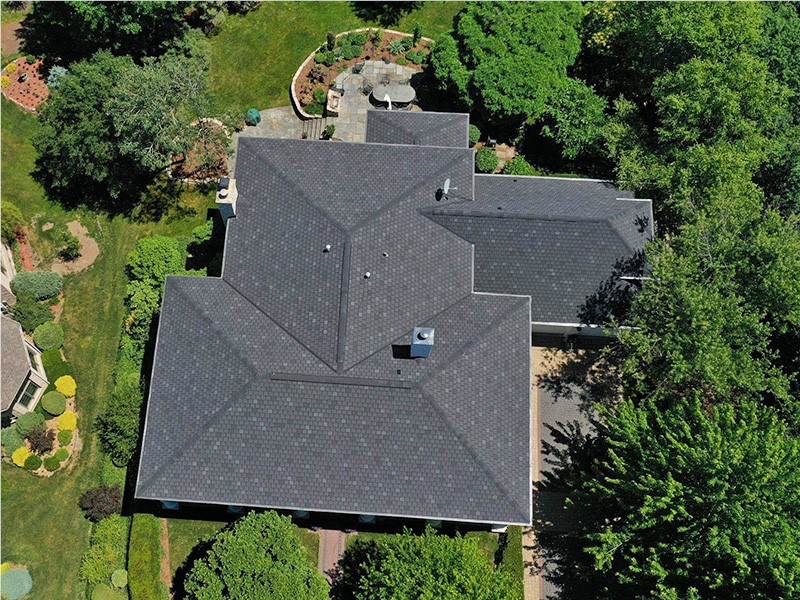
Your roof is one of the most critical parts of your home. It not only protects you and your family from the elements, but it also enhances the appearance and value of your property. However, when it comes to installing a new roof, timing is everything. The season you choose to install your new roof can affect the project's outcome and your budget. In this article, we will guide you through the pros and cons of each season for roof installation so that you can make an informed decision about the best time to replace your roof. From the optimal weather conditions to the availability of contractors, we'll cover everything you need to know to ensure a successful roof installation.
Good seasons vs. not-so-good seasons
When it comes to roof installation, not all seasons are created equal. Some seasons are better for roof installation than others, while some are best avoided altogether.
The good seasons for roof installation are generally considered spring and fall. These seasons offer optimal weather conditions for roofing projects. Spring is typically dry, with mild temperatures, which allows the roofing materials to dry quickly and ensures a tight seal. Fall is also a good season for roof installation, as it's generally mild, with less humidity and fewer thunderstorms; this allows the roofing contractor to work efficiently and complete the job on time.
On the other hand, summer and winter are not the best seasons for roof installation. Summer weather can be hot and humid, making the roofing materials expand and contract, making it challenging to create a tight seal. Additionally, summer thunderstorms can cause delays in the installation process and even damage to the new roof. Winter weather could be better for roof installation. Cold temperatures can make the roofing materials brittle, and snow and ice can make it difficult for the contractor to work safely.
Another critical factor to consider is the busy season for roofing contractors. During the spring, summer and autumn months, many homeowners are looking to install new roofs, making it difficult to schedule an appointment with a contractor; this can cause delays in the installation process and even increase the project's cost. On the other hand, many contractors work less during winter months, homeowners may find a competitive edge here.
Total roof replacement vs. repairs
When it comes to maintaining the integrity and functionality of your home's roof, you have two main options: total roof replacement or repairs. Both have unique pros and cons, and the best choice for your home will depend on your specific needs and budget.
Total roof replacement, also known as a tear-down, involves completely removing and replacing the existing roof with a new one; this option is typically recommended when a significant portion of the roof is damaged, or the existing roof is approaching the end of its lifespan. The duration of a total roof replacement can vary depending on the roof's size and the job's complexity, but it typically takes several days to a week to complete.
The cost of a total roof replacement can also vary widely depending on the materials used, the complexity of the job, and the location of your home. On average, homeowners can expect to pay between $5,000 and $20,000 for a total roof replacement, but this can be higher or lower depending on the specific circumstances, size of the roof, roof slope and other items.
Regarding permits, it's important to note that most municipalities require a permit for roofing work involving a tear-down. The permit cost will depend on the city and can range from a few hundred to several thousand dollars. Therefore, before starting any roofing work, you must check with your local building department to find out what permits are required and what the cost will be.
In contrast, repairs are typically recommended when only a small portion of the roof is damaged. The duration of a repair job can vary depending on the scope of the work, but it usually takes only a day or two to complete. As a result, the cost of repairs is typically much lower than the cost of a total roof replacement and can range from a few hundred dollars to a few thousand dollars.
How long should a roof last?
A roof is critical to any home, protecting from the elements and keeping your interior living spaces dry and comfortable. But how long should a roof last? The answer to this question depends on several factors, including the type of roofing materials used, the quality of the installation, and the weather conditions in your area.
As a general rule of thumb, most residential roofs are designed to last between 15 and 25 years. However, some roofing materials, such as metal and tile, can last much longer, with lifespans of up to 50 years or more. Other roofing materials, such as asphalt shingles, have shorter lifespans of 15 to 20 years.
The quality of the installation also plays a critical role in determining a roof's lifespan. A roof installed correctly, with proper ventilation and flashing, will last longer than one installed poorly; choosing a reputable, experienced roofing contractor is crucial to handle your roofing needs.
Climate and weather conditions also affect the lifespan of a roof. For example, roofs in areas with high winds, heavy rain, and severe storms will have a shorter lifespan than in areas with more moderate weather conditions. Similarly, roofs in extreme heat and sun exposure areas will also have a shorter lifespan than in cooler climates.
In addition to the materials, installation, and weather conditions, the maintenance of the roof is also essential. Regular maintenance and inspections can help extend a roof's lifespan by catching and fixing minor problems before they become big ones. Properly maintaining the roof can also help to identify issues early, reducing the risk of water damage to your home.
A roof is a critical component of any home, protecting it from the elements and keeping your interior living spaces dry and comfortable. The lifespan of a roof can vary widely depending on the type of roofing materials used, the quality of the installation, and the weather conditions in your area. Generally, most residential roofs are designed to last about 15 to 25 years, but some can last much longer with proper maintenance.
It is essential to consult us to determine the best option for your specific situation and to keep it maintained over the years. Whether it is a total roof replacement or repairs, it's essential to know the duration, cost and permits required. It's also important to know when it's time to replace your roof and not to procrastinate; this can save you a lot of money and hassle in the long run. Finally, keeping your roof in good condition ensures that your home remains safe and comfortable for many years.
Tags
Subscribe to Pro Home 1's Blog








Comments